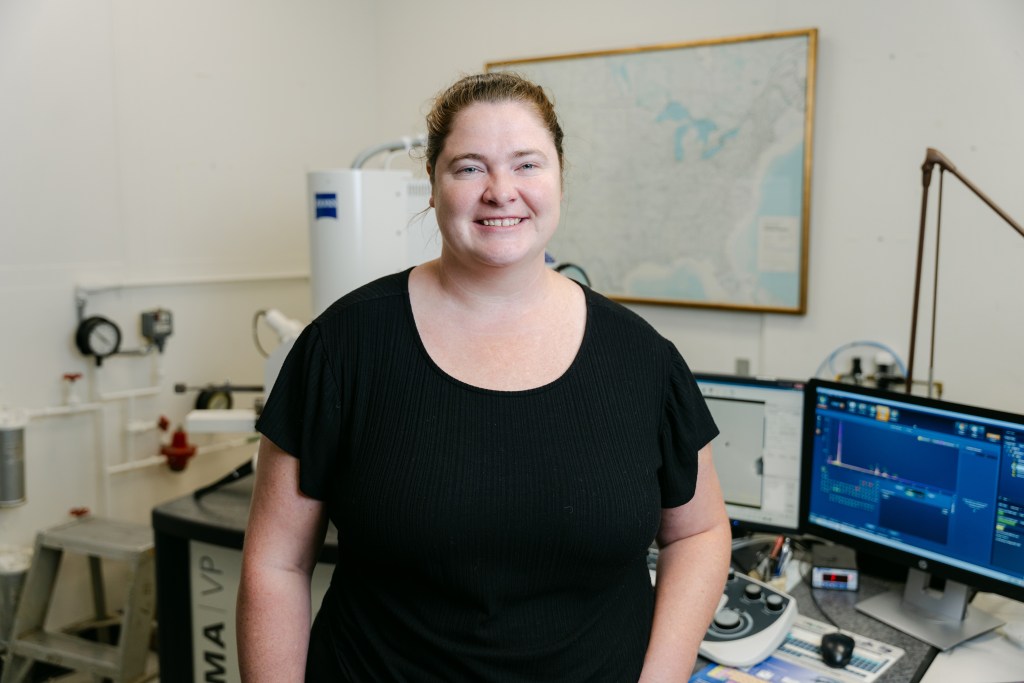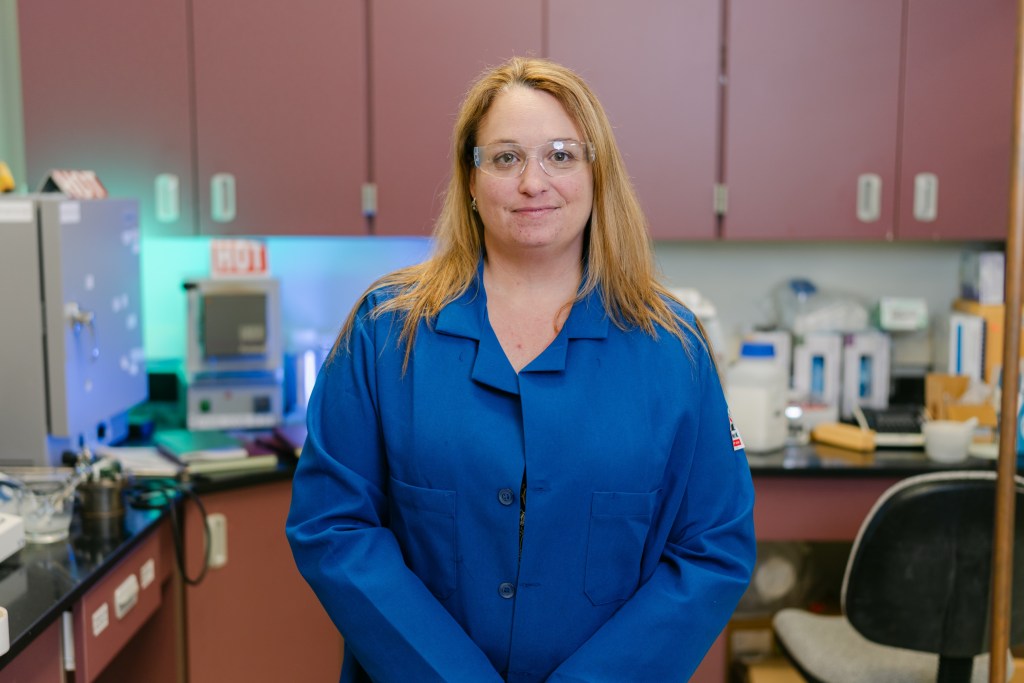Dwight D. Eisenhower Postdoctoral Research Fellowship
SRNL is pleased to offer the Dwight D. Eisenhower Distinguished Postdoctoral Fellowship to outstanding early career scientists and engineers focused on expanding the boundaries of science and engineering. The Eisenhower Fellowship is the most prestigious postdoctoral opportunity at SRNL and is designed for pioneering researchers to work toward solving complex problems which align with the core capabilities of SRNL in environmental management, national security, and emerging science and technology. This fellowship offers the unique ability for postdoctoral fellows to define and lead their own research under the mentorship of an experienced laboratory researcher.
Each Eisenhower Fellowship is an initial one-year appointment, with an option to renew up to three years.
The application window to apply to become a Dwight D. Eisenhower fellow is typically open from early spring to mid-summer. Status updates will be published on this page.
Meet the current Dwight D. Eisenhower Postdoctoral Fellows

Colleen Hilla, Ph.D.
Ohio State University, Department of Materials Science
The Eisenhower postdoc position has allowed me to take full ownership over my research at SRNL. This has allowed me to interface with more people throughout the lab and seek out additional engaging research opportunities. Focusing on a single research project has allowed me to build upon my research focus area and discover how this work can best integrate into the lab as I continue my career.

Stephen Vicchio. Ph.D.
Clemson University, Department of Chemical Engineering
The ability to focus solely on my own project, stemming from an idea I had during the last six months of my PhD, has challenged me to grow outside of my comfort zone through the addition of new skills. The Eisenhower Fellowship is the perfect opportunity for me to conduct cutting-edge research while also gaining more project management skills, so that I can be a successful Principal Investigator.

Jennifer Naglic, Ph.D.
University of South Carolina-Columbia, Department of Chemical Engineering
I pursued the Eisenhower Postdoctoral Research Fellowship as this position provides me the ability to investigate the work that I am passionate about while establishing myself at SRNL. Beginning my career with a project that I designed allows me the opportunity to grow as a researcher while figuring out the ins and outs of funding my work.
How To Become a Dwight D. Eisenhower Postdoctoral Fellow
Successful candidates:
- Demonstrate ability to generate new ideas and develop future research programs.
- Demonstrate scientific productivity through multiple peer-reviewed publications on advanced research.
- Be able to work in a team environment and have exceptional critical thinking and data analysis skills.
- Demonstrate ability to develop and communicate innovative scientific concepts and technical results.
- Be capable of scoping technical tasks and developing thoughtful, creative solutions.
Submission requirements:
When the application window is open, prospective candidates can click the “Apply Now” button to be directed to the job posting on the Savannah River National Laboratory Careers site.
- Detailed resume/CV that includes all relevant achievements, including publications.
- A research proposal white paper (up to two pages) that demonstrates an ability ideate research approaches align with SRNL’s core competencies or missions. The white paper should address the following items:
- Identification of Research Focus Area (More Information on Research Focus Areas)
- Significance and Motivation
- Proposed Research
- Expected Impact and Outcomes
- References
- Academic Transcript
Up to three letters of recommendation are optional. Testimonials should address the applicant’s direct experience in furthering the state of research and technology.
Research Focus Areas
When developing the white paper, applicants must address at least one of the following research focus areas. Applicants are encouraged to direct questions on laboratory resources to eisenhower@srnl.doe.gov.
- Advanced Manufacturing Process Optimization Modelling and Simulation
- AI/ML Process Integration for Transformational Chemicals Production
- Applied Artificial Intelligence
- Cementitious Materials
- Electric Grid Resilience
- Hydrogen isotope separations
- Nuclear Fuel/Nuclear Materials Processing and Disposition Technologies
- Tooling for Nuclear Materials
- Ultra-Sensitive Radiation Detector Development